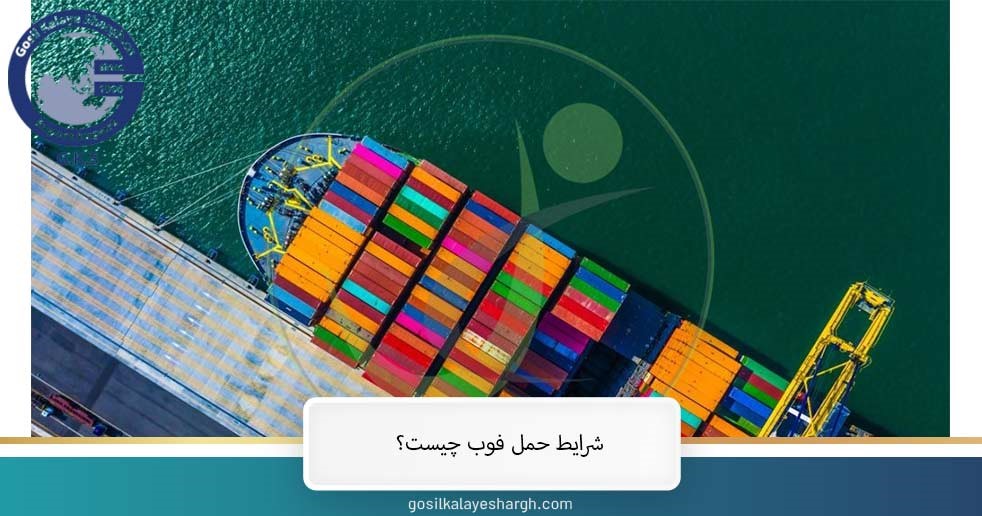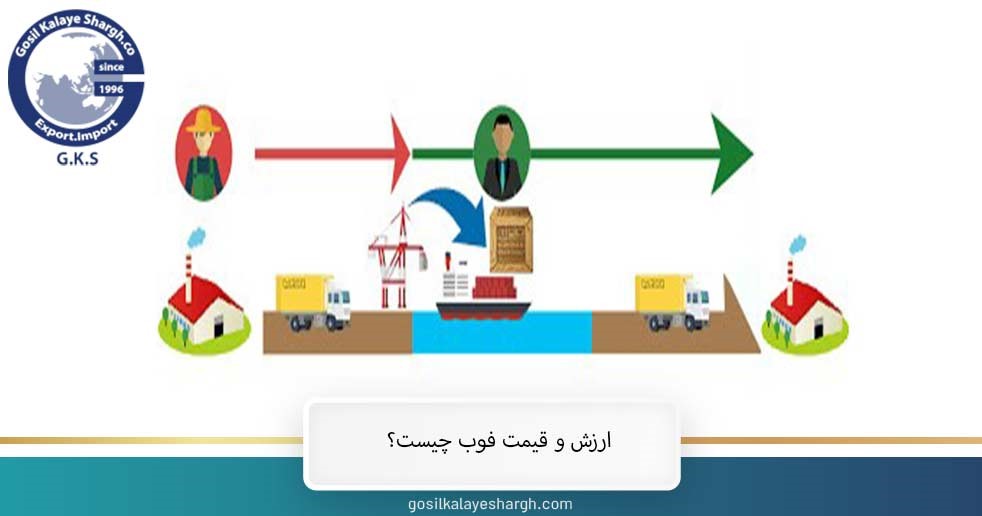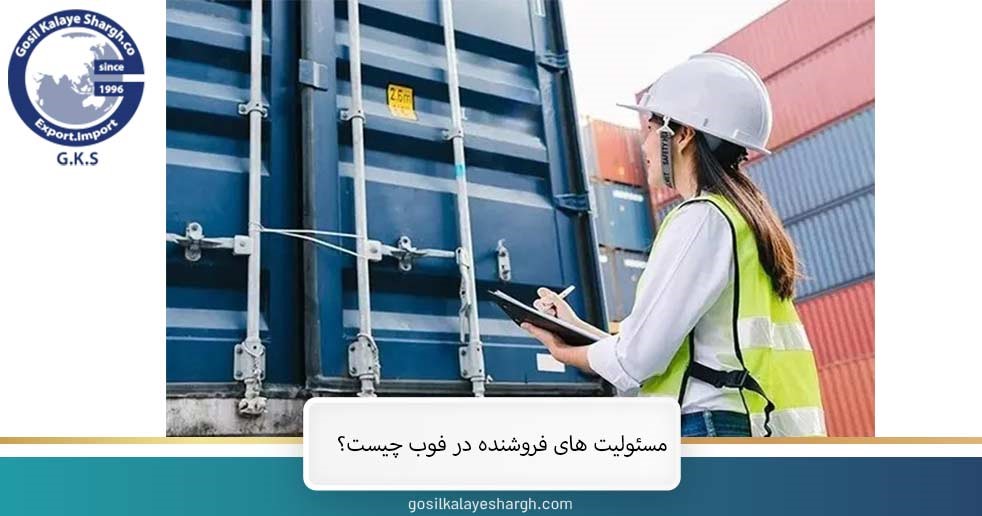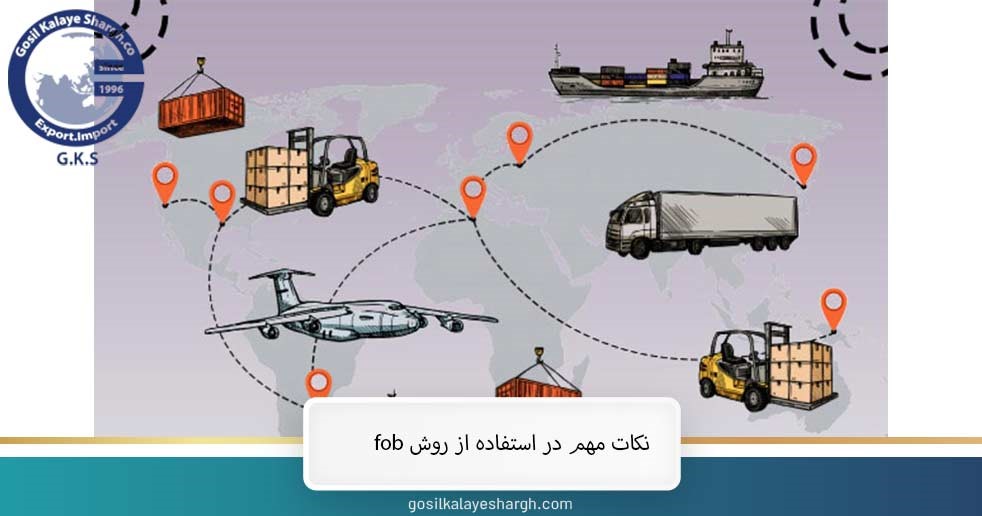In international trade laws, FOB is the most important modification that is used in most cases. With the help of this term, international trade can be expressed in a simple language. To learn more about this category, it is better to follow this article to the end.
History of FOB
The international shipping company has defined an important and practical term called FOB for transporting goods by ship, the meaning of which is different in different countries. To get familiar with this term in the company, you can read the article related to it. This term comes from a time when sailing ships were handling cargo and workers were required to manually carry the cargo onto the deck.
This term refers to the transportation of goods by ship. This term is seen in most commercial contracts and its use requires the seller to comply with obligations. According to this term and related laws, the seller must receive the goods from the buyer.
What are the different modes of shipping with FOB terms?
In terms of FOB transportation, there are different modes that the truck import company uses when needed. To learn about this process, you can read its article. Here we introduce the different modes of transport in detail:
- FOB Origin, Freight Prepaid: in which the seller must pay the cost of transporting the goods and insurance is the responsibility of the buyer.
- FOB Origin, Freight Collect: Another mode of freight transportation, in which all costs related to transportation and insurance are borne by the buyer.
- FOB Origin, Freight Prepaid, & Charged Back: In this method, the buyer must pay for shipping and insurance at once according to the invoice.
- FOB Destination, Freight Prepaid: In this case, shipping and insurance costs are the responsibility of the seller.
- FOB Destination, Freight Collect: This mode is related to the time when insurance is the responsibility of the seller and transportation is the responsibility of the recipient.
- FOB Destination, Freight Collect, and Allowed: In this case, both shipping and insurance costs are the responsibility of the buyer.
What are the FOB shipping terms?
FOB shipping, like any other law, has its own conditions. The main condition is that the seller delivers the goods on the ship. He is obliged to provide the goods to be delivered. When the goods are loaded by ship, the risk of loss or damage is transferred from the seller to the buyer, and the seller no longer has any obligations in this situation. The condition of FOB shipment is that after loading all costs are with the buyer.
This method is mostly used for sea transportation. You can use this technique when the goods are delivered on board. According to this rule, it is clear that in the current situation, the buyer must pay the cost of transportation and insurance or the seller. In the case of plastic export, the transportation conditions will be different, which is mentioned in a separate article.
What is a fob of origin?
FOB or FOB origin is a common term in shipping and is used when the shipment is located at the seller’s location. When the goods leave the seller’s warehouse, the seller can register the sale in full. In this situation, the buyer must pay for the delivery of the goods. FOB of origin can determine the responsibility of the buyer and seller during the shipping process.
If the goods are damaged, the responsibility of both parties will be clear. When the buyer buys the goods from the seller and as FOB origin, the responsibility and costs of the shipment are with the buyer. Some traders use the term fob of origin in importing Volvo trucks, which is also mentioned in this article.
What is destination fob?
Destination fob is used when the seller delivers the goods to the buyer at the specified location. At this time, the ownership of the goods is transferred from the seller to the buyer; But again, the seller legally owns the goods and is responsible for shipping.
This contract is for the benefit of the buyer. If the shipment is damaged during the transportation process, the seller is obliged to be responsible and pay the damage to the buyer. Shipping and insurance costs are the responsibility of the seller and the buyer should not pay any costs.
Advantages of FOB shipping for the buyer
FOB shipping brings many benefits to buyers. It allows the buyer to have better and more control over shipping costs and prevent cost increases. The seller is also obliged to manage the goods in the local area during the export process. After delivering the goods to the buyer, the seller will not have any duties and responsibilities, which is in the seller’s favor. The buyer can make shipping more affordable by controlling costs.
Disadvantages of FOB shipping for both buyer and seller
Along with advantages, FOB also brings disadvantages for buyers and sellers. The most important disadvantage of this method is that more costs are created for each unit of cargo, and this can make transportation expensive. The seller can only record the local shipping cost and does not have the potential to record the international and foreign costs. Buyers and sellers who follow this rule sometimes face limitations.
What is the value and price of fob?
FOB price means the price of goods upon delivery at the port of origin. This price includes all loading and shipping costs. After the shipment arrives at the destination port, all costs are the responsibility of the buyer, who must pay. FOB is an international and legal term that has its own value.
According to this law, the seller is responsible for the transportation costs to the place of loading, and until the shipment reaches the buyer, the seller bears all the responsibilities. The seller is obliged to deliver to the buyer on the ship’s deck. All the costs that are spent to get the shipment from the origin to the destination determine the Incoterm value.
Where is the international method of transporting FOB cargo not suitable?
The FOB shipping method is not suitable in some situations, which we mention here:
- When the product is not properly packaged.
- Transporting goods is costly due to the large weight and volume.
- Export and import laws in embargoed countries are cumbersome.
- If you use the Incoterm method under the mentioned conditions, it will definitely take a lot of time for transportation and it will be costly.
With whom is the goods clearance in the method of buying goods (Incoterm) fob?
Clearance of goods in method fob or incoterm is the responsibility of the buyer and seller, and both are involved in this process. Responsibility is shared between the parties. In other laws, the seller is not responsible for buying goods; But in the Incoterm method, the seller is obliged to pay all the costs of loading, duties and transportation. When the goods are cleared, the final costs are distributed between the buyer and the seller, and they must pay this cost in order to exchange the goods.
What are the seller’s responsibilities in FOB?
In FOB, the seller has certain responsibilities, the most important of which are mentioned here:
- In the FOB international shipping method, the seller is required to prepare commercial documents.
- The seller must electronically equate the bill of lading, commercial list and other documents.
- If the buyer requests insurance for the cargo, the seller is obliged to insure it before placing the goods on the ship.
- Necessary arrangements for the delivery of goods are made by the seller until the goods reach their destination.
- Loading the goods is another duty of the seller and she is responsible to arrange the goods in the best way on the ship deck.
What is the responsibility of buyers in FOB?
In the Incoterm shipping method, the buyer has two main responsibilities, which we present here:
- Coordinating the delivery of the goods to the destination is one of the main duties of the buyer and she bears all the responsibilities in this process.
- Other responsibilities of the buyer include paying for the delivery of goods. All costs are borne by the buyer until the shipment reaches its destination.
Is insurance required for FOB shipping?
In FOB international shipping, insurance payment is not required. For some cargoes, insurance is suitable and can keep the cargo away from damage. In most cases, the buyer arranges the insurance and can consult with the seller about this. Under FOB, insurance is not necessary and the buyer decides whether to insure the shipment or not. If the cargo has insurance, the buyer can receive a fee from the insurance in case of damage. The cost of insurance is the responsibility of the buyer and must be paid if necessary.
Important points in using the fob method
The FOB or Incoterm method has its own rules and if it is done according to the principles, it can bring good advantages for buyers and sellers. To implement this method, you must pay attention to the following points:
- Time and place of delivery
- Transportation costs
- responsibilities
- Product quality
- Local and international laws
- Negotiations
- Risks
final word
FOB or FOB in Incoterms is an important international contract that is registered between the buyer and the seller and defines their duties. If the goods are damaged during the transportation process, the buyer or seller will take responsibility. If the shipment needs insurance, the buyer is obliged to pay the insurance fee.
If you have any questions about this, you can easily contact us. Our advisors and experts at Ghasil site can provide valuable advice and guide you in this process.







